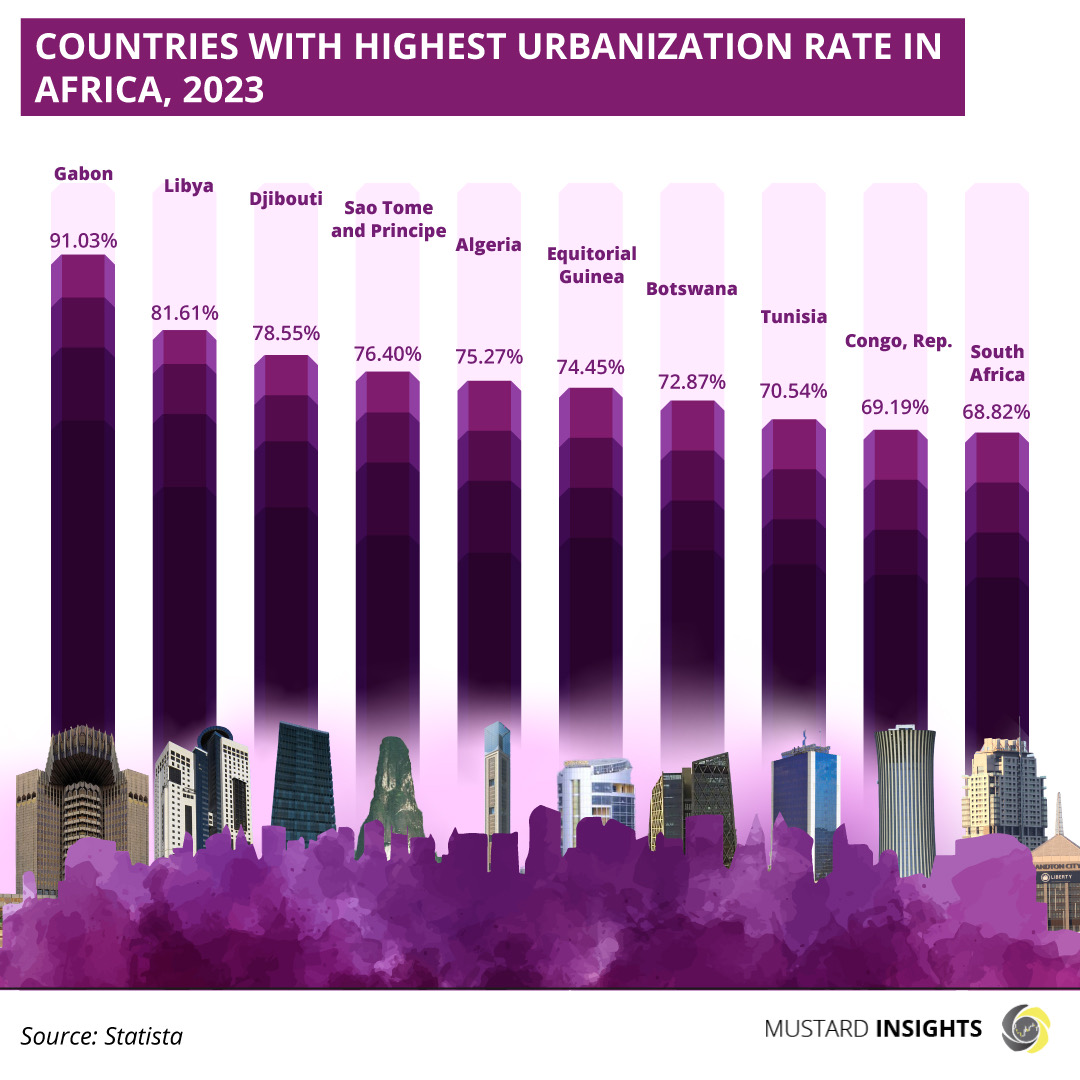Urbanization rate – the rate at which rural dwellers move to urban areas or the population growth of urban dwellers – on the African continent has grown at a steady pace since the early 2000s, and it is no surprise why. For one, it is natural for people to want to aspire to greener pastures to create ‘better’ opportunities for themselves and their families. While there is certainly a need to redefine what urbanization means on the African continent contextually, the continent’s fast paced population growth and increased migration to what are considered urban cities may be a cause for alarm when juxtaposed with the pace of development of these cities.
According to the Organisation for Economic Co-operation and Development (OECD), Africa has the fastest rising urban population globally as African cities are expected to house an extra 950 million people by the year 2050. Today, some of the world’s most populous cities are settled in Asia; by 2100, they would be in Africa. While these have their benefits say around labour intensive development, the limitations of such rapid growth are plenteous.

Average urbanization rate in Africa has steadily risen for over two decades and the trajectory is set to grow even further with various nations tilting to extreme ends and having contextual dynamics. According to Statista, in 2023, Gabon had the highest urbanization rate in Africa, with 91.03% of its population living in urban areas and Libya following closely with 81.61%. While Nigeria’s urbanization rate was just above average at 53.52%, its premier urban city, Lagos, is on its way to becoming the world’s most populous city and struggles with limited public services and infrastructure. While recent administrations have prioritised the development of mass transportation systems and the likes, it’s inherent size limitation as well as its planning deficiencies to cater to the needs of tens of millions of new inhabitants cannot be ignored.
While Rwanda has one of the lowest urbanization rates with 17.89% as at 2023, it too has struggled to keep up with its level of improvement in service delivery and infrastructure provision especially around housing, sanitation, and water. As of 2002, data by Minecofin revealed that only 20 per cent of urban residents had water in their homes, 45 per cent bought water from vendors, while 28.4 per cent fetched water from boreholes and natural springs. Between 2005 and 2020, water demand doubled in Kigali, and more than doubled for the semi-urban settlements. Many residents have had to face months acute water scarcity, augmenting the shortage with swamp water. Kigali has since come up with an urbanization masterplan to improve access to sustainable infrastructure and services while also strengthening urban management and resilience.
Urbanization comes with diverse opportunities such as economic growth, innovation, and cultural diversity, it also births significant challenges especially for lower income or underdeveloped economies such as increased inequality, constrained access to infrastructure, and the degradation of environmental quality. While the story may be different from one African country to the next, the fact remains that as the continent experiences unprecedented population growth amongst other percussors to rapid urbanization, increasingly concentrated populations place pressures on limited infrastructure and services.
A way to mitigate this challenge is through the development of new cities to reduce pressures on existing ones. It also requires effective planning and management, increased public-private partnerships in the development of public infrastructure, the enhancement of education and skills training to prepare individuals for higher-skilled jobs that available in cities, and ensuring that urbanization plans are strategic, contextual, and followed as closely as possible.
Thoughts?
We won't share your email address. All fields are required.

